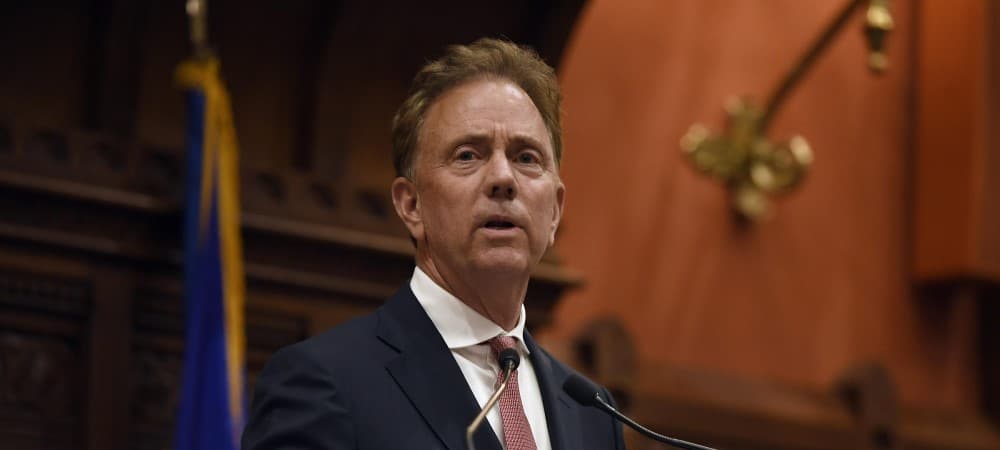- CT Governor Ned Lamont wants the state’s tribes to forego plans to build a casino at East Windsor in exchange for rights to CT sports betting, iGaming, and the XL Center.
- Tribes in Connecticut have already invested $20 million dollars in their efforts to build the East Windsor casino.
- MGM has threatened to sue if the East Windsor casino is awarded to the tribes.
- A sports betting bill in Connecticut was previously passed in 2017 which allows for the state to create regulations surrounding the activity.
HARTFORD, Conn. – The XL Center, located in the capital city of Hartford, is the latest asset to be used in ongoing negotiations between Connecticut Governor Ned Lamont, the state legislature, and the state’s two federally recognized Native American tribes.
The deal, which has not yet been finalized, was introduced by Governor Lamont and would involve the Mashantucket and Mohegan tribes to drop their plans to build an East Windsor casino in exchange for the XL Center, a casino in Bridgeport, and rights to operate state-wide online sports betting and iGaming.
“His primary objective is to do what’s best for the state of Connecticut, not the narrow interests that so often dominate this issue at the expense of the citizens of this state,” said Ryan Drajewicz, Lamont’s chief of staff to the Hartford Courant.
Reports of this proposal come only days after state Senator Cathy Osten revealed a draft proposal last week that would give the state’s tribe’s the right to operate sports betting in Connecticut as well as build a satellite casino at East Windsor.
Osten’s draft bill, while receiving bipartisan support in the state legislature, was quickly dismissed by Lamont’s office. Negotiations are expected to resume this week, where Lamont hopes to make progress on the overall issue of gaming expansion in the state.
“I’ll revive any [gambling] idea that lets us get off the dime, and I don’t have to sit around and talk about gambling for the next three years – because, in terms of my priorities, I’m not sure it’s in the top 20,” said Lamont.
CT HB 6948, was a Connecticut sports betting bill passed by former CT Governor Dannel Malloy in 2017. The bill gives the state the option to create regulations for sports wagering, but complications with various gambling stakeholders have delayed any potential sportsbooks from launching in the state.
What Could The Tribes Stance Be?
The Mashantucket and Mohegan tribes have both paid a substantial amount of tax revenue to the state over their years of operation. Over the past 27 years, the tribes have contributed about $8 billion in an agreement that allows them to operate slot machines.
There longstanding relationship with the state government gives them a substantial amount of leverage in negotiations. Their exclusivity has to slot machines has proven advantageous for both parties and they believe it would be the same for any CT sports betting regulations.
The tribes have also already spent $20 million in designing, planning, and demolition costs associated with their long battle to build a casino in East Windsor.
The casino would cost $300 million in total and allow the tribes to better compete with MGM Resorts International which operates a $1 billion casino in Springfield, Massachusetts.
What The State Is Facing
MGM Resorts International has previously threatened to file a lawsuit to stop the opening of an East Windsor casino since the company believes that the state did not hold an open process when choosing who would be able to operate the gaming facility.
Governor Lamont has insisted that he does not want to risk the state from being sued and wants to push for expanded gambling in the state.
“If this gets stuck in the legal muck like it’s been for the last five years, we’re not going to show any progress,” Lamont said. “I wanted something that made sure we didn’t get stuck in a legal ditch for the next five years…I wanted something that allows us to get going with sports betting and internet gambling.”
The XL Center also needs hundreds of millions of dollars in improvements that state legislators have not been willing to pay for. If the tribes were awarded the property then they would be able to host sports betting, casino games, restaurants, as well as NCAA basketball and minor league hockey games.
This latest proposal from Governor Lamont would eliminate the potential litigation to come from MGM, improve the XL Center, and allow the tribes to offer legal sports betting sooner than later. However, the tribes and the General Assembly will have to be on board for these plans to continue.
Advertising Disclosure
In order to provide you with the best independent sports betting news and content LegalSportsBetting.com may receive a commission from partners when you make a purchase through a link on our site.
News tags: Cathy Osten | Connecticut | Dannel Malloy | East Windsor | Harford | Mashantucket Tribe | Massachusetts | MGM Resorts International | Mohegan Tribe | Ned Lamont | Ryan Drajewicz | Springfield | XL Center

– In his career, Hasan has worked both local and state government positions—including the Attorney General’s Office in Florida. On top of being familiar with the legislative process, he has also been researching and writing on the legality of sports betting across the US. Outside of work you’ll most likely find him producing or playing music, playing sports, or working on creative writing projects. You’ll also catch him at Doak Campbell Stadium cheering on the Noles.


 Bitcoin Sports Betting Sites
Bitcoin Sports Betting Sites Best Online Sports Betting
Best Online Sports Betting Famous Sports Bettors
Famous Sports Bettors States With Legal Sports Betting
States With Legal Sports Betting Sports Betting Events
Sports Betting Events




